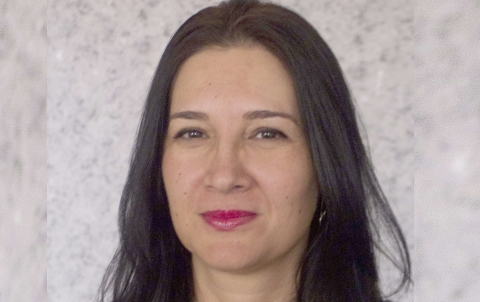Freedom from Torture
Civil Society Coalition against Torture and impunity in Tajikistan

Nigina Bakhrieva’s visceral sense of justice was passed on to by her parents, as she quickly demonstrated by following in the footsteps of her father – a prosecutor – in standing firmly for the rule of law.
“It’s what I learned as I child, “ she says. “When I witness human rights abuses, I cannot be indifferent; I take action.”
And her career could not have been more ominous. Nigina started law school in Tajikistan, at the doorstep of Taliban-led Afghanistan, at the very outbreak of the bloody civil war that followed the country’s independence, graduating five years later, in 1997, as the war ended, leaving behind a devastated country with some 100,000 people killed and 1.2 million displaced.
After teaching law at the Tajik state university, Nigina became a consultant providing capacity-building expertise for various organizations. Moving quickly into human rights, she went to work for the United Nations Tajikistan Office for Peace Building where she reviewed national legislation to make sure it conformed to international human rights standards.
Thus, while still as a budding lawyer and founder of the Bureau on Human Rights and Rule of Law of Tajikistan, Nigina helped to litigate with success Tajikistan’s first-ever human rights case before the United Nations Human Rights Committee (the equivalent of a human rights court) – something unheard of in Tajikistan until then. Her work for the abolition of the death penalty in her country led to a moratorium being adopted in 2004.
This fertile training ground provided a whole range of tools by which this ambitious lawyer was able to help her country – a former-Soviet republic – advance towards the rule of law. In 2009, she created Nota Bene, which leads the Anti-Torture Coalition of 17 leading human rights organizations and activists in Tajikistan.
A painstaking transition to modernity
The work initially seemed to pay off handsomely: at the beginning of 2014, Tajikistan had pledged to implement international human rights standards both in law and practice. The Government, however, has recently been limiting the scope of action in the country of human rights lawyers and organizations. It has indeed been made mandatory for non-governmental organizations to declare all foreign funding. What is more, limiting access to the legal profession and placing it under the Ministry of Justice has compromised its independence.
“It is worrying that it has become nearly impossible to find lawyers in Tajikistan willing to accept to defend torture cases for fear of criminal prosecution,” reported the OMCT in the Observatory for the Protection of Human Rights Defenders on Nov. 30th.
As one of the few lawyers who have not given up on combatting the widespread use of torture and other forms of abuse, especially in the armed forces, Nigina is among the key players pushing for full transition of Tajikistan to the rule of law. The burden of such a heavy responsibility understandably takes a toll.
“The work is hard”, she says. “Each time we re-live with the victims what they went through, and it is horrifying,”
For change to occur, though, the system must work and all actors must do their bit, she explains, detailing every step of the process: individuals must lodge complaints when they are subjected to torture or ill treatment; the Government must follow a zero-tolerance-for-torture policy; the Prosecutor must respond to every complaint by thorough and effective investigation; courts must punish all those found guilty – not only the direct perpetrators, but also their superiors, who failed to prevent the crime; jail terms should be proportionate to the seriousness of the crime; finally, the Government should compensate all victims of torture.
When all parts of the mechanism of the justice system will function, torture will cease to be the norm, and become rare and atypical in Tajikistan. That is what Nigina silently keeps struggling for.
-- by Lori Brumat in Geneva